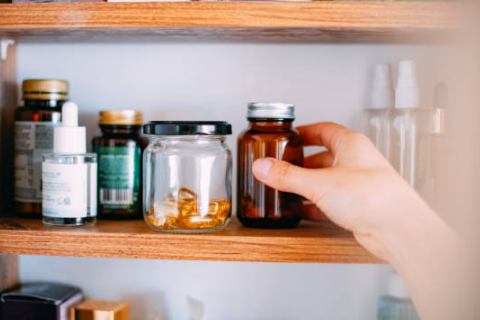Ongoing sleep issues—especially insomnia—can seriously disrupt your life. You may notice the effects in your mood, energy levels, and focus.
While therapy and medication can help, certain supplements offer a more natural way to treat sleep disorders.
1. Melatonin
Melatonin is a hormone that regulates your circadian rhythm (the sleep-wake cycle). When it gets dark, your brain produces more melatonin to signal it’s time to sleep. When it’s light, melatonin levels drop to help you stay awake.
Melatonin supplements can increase your body’s melatonin levels and are especially helpful for those with trouble falling asleep or with circadian rhythm disorders (like people who are blind). It may also help with jet lag or mild insomnia—but usually only for short-term use.
Safe dosages for adults go up to 8 mg daily for up to six months. For kids, 3 mg daily for up to three months is typically considered safe. The best time to take melatonin is 1–2 hours before bed.
2. Valerian Root
Valerian root comes from the Valeriana officinalis plant. It’s thought to work by increasing GABA, a calming neurotransmitter in the brain that promotes relaxation and sleep.
Side effects can include headache, dizziness, nausea, or rash. If you choose to try it, take 300–600 mg about one hour before bedtime. Doses over 600 mg may cause grogginess the next morning. Valerian is not recommended for pregnant or breastfeeding women.

3. Tart Cherry Juice
Small studies suggest that tart cherry juice can improve sleep and reduce symptoms of insomnia. It contains melatonin and has anti-inflammatory properties, which may help regulate your sleep cycle.
For best results, drink 240–480 ml (8–16 oz) daily, ideally 1–2 hours before bedtime. You can also combine it with other sleep-supporting supplements like magnesium or melatonin.
4. Magnesium
Magnesium is a mineral involved in energy production, protein synthesis, and circadian rhythm regulation. It also supports sleep quality.
Research shows that taking over 500 mg per day of magnesium for more than eight weeks can improve both sleep duration and quality.
5. Tryptophan
Tryptophan is an amino acid found in many foods and also available as a supplement. Once absorbed, your body converts it into serotonin, which promotes calmness and helps fight fatigue.
Doses of 1 gram or more may help people with insomnia fall asleep faster. Take it 20 minutes to 1 hour before bed for best results.
6. L-Theanine
L-theanine is an amino acid naturally found in tea leaves, especially green tea. It helps increase GABA in the brain, which reduces anxiety, stress, and sleep difficulties.
Typical dosages range from 200–400 mg daily, taken for 4 to 8 weeks.
7. Lavender
Lavender is a fragrant evergreen plant often used in bath products, perfumes, and aromatherapy. Inhaling or applying lavender essential oil may ease insomnia symptoms.
Lavender aromatherapy has been studied across various groups and conditions and is generally considered safe and effective for promoting sleep.
8. Passionflower
Passionflower (Passiflora incarnata) is a traditional herbal remedy used for anxiety, ADHD, opioid withdrawal, and menopausal symptoms. It may also improve sleep and relieve insomnia.
Passionflower contains GABA, which promotes relaxation. One study showed that taking 60 mg of passionflower before bed for two weeks helped extend sleep time in adults with insomnia.
9. Chamomile
Chamomile has been used for centuries to treat anxiety, stress, and sleep problems. It may work by binding to GABA receptors in the brain and may also contain natural melatonin.
Chamomile is most commonly consumed as a tea, but it’s also available in supplement form. Doses up to 1,500 mg daily for up to 26 weeks are considered safe.
10. Glycine
Glycine is an amino acid essential for brain and nervous system health. It relaxes blood vessels, helps lower body temperature, and stimulates serotonin release—all of which help promote deeper sleep.
Glycine is found in high-protein foods and supplements. Taking 3 grams before bed may improve sleep quality and reduce daytime fatigue. Up to 6 grams per day for 4 weeks is generally safe.

